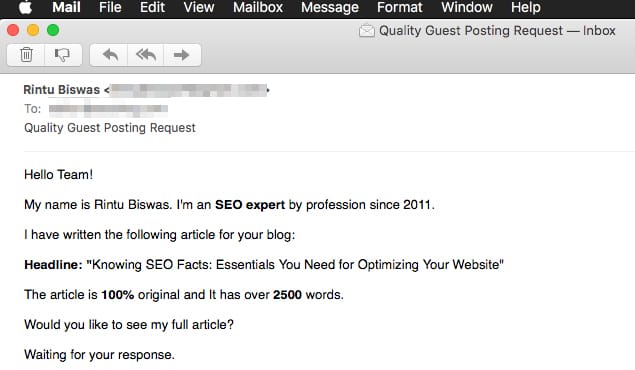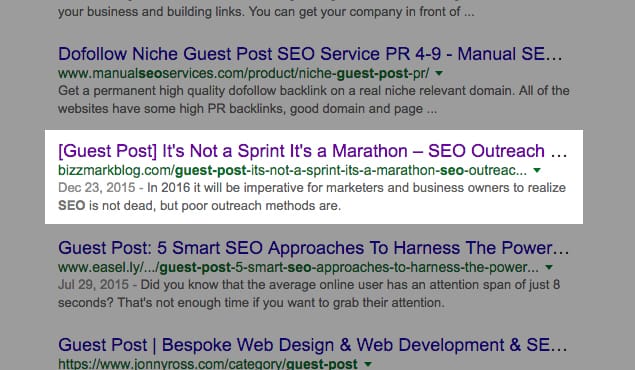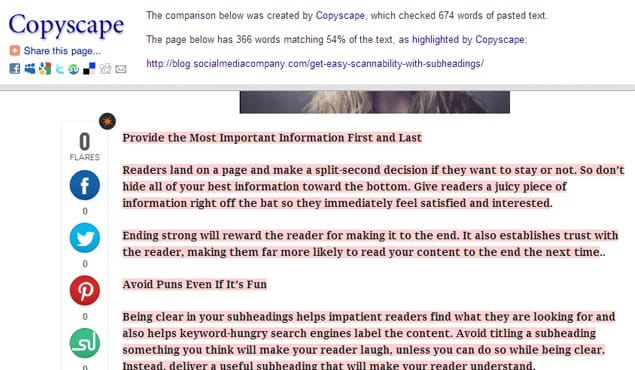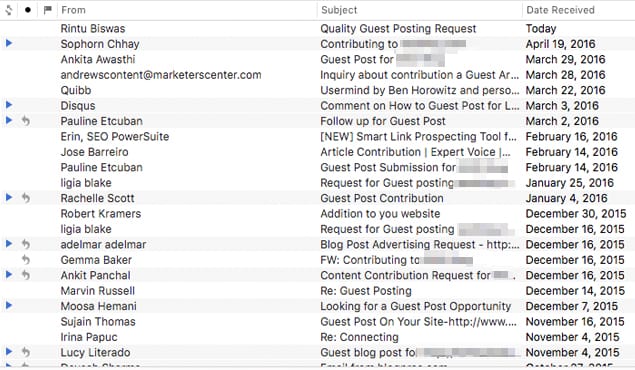Guest posts for blogs and websites are a fantastic concept….at first glance. But they may not always be in your best interest. Guest posting has become a controversial technique for brand building, link building and SEO.
There are pros and cons to accepting writings by those outside your inner writing circle. We present the “pros and cons” for your review before engaging in a guest blog post. We also encourage you to consider some guidelines for visiting writers (which we will discuss toward the end of this article):
Does Accepting Guest Posts Save Time?
Pro: Writing articles and blogs on a regular basis is hard work. It takes creativity, research, a clear mind and loads of time to create content that enlightens, motivates and touches your targeted readers. Allowing for a guest post can provide a well-deserved rest and a pause from writing. If you are posting regularly, a guest blogger provides you the ability to take a deep breath and recharge your juices.
Con: A temporary and new writer may actually not save you any time at all. In fact, it may actually increase your workload. It takes time to review content, assess pitches, edit, format the copy and find appropriate images. You may discover that publishing a guest post takes almost as long as producing a post yourself. This may be one of the reasons not begin a program or accept every guest post sent your way.
Does Accepting Guest Posts Earn New Readers?
Pro: Most visiting bloggers promote their post to their own social media accounts and expose your site to a fresh audience. A different audience can infuse new energy into your comment section, potential covert readers to buyers (if you are pitching a product or service) and renew the interest of current followers.
Con: Everyone has their own writing style and a visiting writer may have a completely different tone and view. If the perspective is not consistent with the style you have created, it may not be wise to accept an untested blog post…especially one that is unsolicited. If you have a loyal readership and a strong brand, your regular readers may wonder why the approach of the information has changed, especially if it is not up to your standards. Guidelines and parameters for new authors can help.
Does Accepting Guest Posts Help Your SEO?
Pros: When you add new content to your site, you’re expanding your “search footprint.” New writers and their content deliver an increasing number of new possibilities for your site to found with additional of keywords. Using guest posts almost always assures that different keywords will be created.
Con: The heavy lifting is still on you if you decide to accept outside guest articles. In order to maintain your credibility, you will have to allot time to:
- Double-check all links included by the guest are active and appropriate (no spam that will aggravate your customers)
- Double-check that the post is edited and free of typos
- Ensure that images are relevant and enhance the post
- Keep an eye on comments and monitor how the new content is being received
The Qualities of a Successful Guest Writer
If you decide to use a guest blogger, you must be particular and picky. Accepting guest posts just because you think it will increase your traffic is not a valid reason to open your reputation up to problems.
The number one reason to accept a visiting writer is to provide content that will benefit your readers.
These are some of the other essential characteristics you should review before moving forward with guest posts:
Track record of writing relevant content
It is not uncommon to receive a spontaneous request for the opportunity to blog from someone who has actually never written a guest post nor has very little experience. It makes sense to do a Google search to assure they have some knowledge that relates to your topic. You’ll want to request multiple samples to determine if they are able write at a quality level you are comfortable being associated with. Remember, regardless of whom writes the blog, it is your character on the line.
Also, it is vital to check that they are not associated with spam content (which would harm your own reputation). This happens much more than you might think, so “buyer beware.”
Review links
It is normal and acceptable for writers to link to outside sources as long as those links are benefiting your readers. It is also commonplace that a link from a guest blogger connects to the writer’s social media accounts or website, as long as they are not soliciting any money or service. The moment those links don’t benefit your readers, remove them. It is also beneficial to link to other blogs and articles on your own site (referred to as interlinking).
Evaluate the Content
If the copy has constant spelling or grammar errors it is a sure sign that the author didn’t spend too much time on it. Also ask yourself if you believe the topic and content. The content has to fit in with your blog theme. It should match your outlook on the subject matter or present a legitimate debate on a topic with facts and not fiction. You will be expected to be responsible for any and all content that appears on your site.
This can lead to a discussion on ownership of content. Guest authors should clearly understand that their content will become the sole possession of your website where it is published. This will allow you, the website owner, to have authorization on the distribution of the content now and in the future. It’s not a bad idea to have a simple one-page agreement signed by both you and the visiting writer to avoid complications down the line.
The most essential component when evaluating the content of a guest blog is its uniqueness. Duplicate content can do nothing but hurt you and your reputation. In addition, Google and other mainstream search engines frown upon duplicate content on web pages. If the content a writer is trying to submit to you is plagiarized, reject it. There are several content checking systems and some of them are free.
If you are not completely factors, you should not accept the guest post. After all, you do not need to accept every guest post presented to you and it is okay to say “no.”
When to Accept (Or Reject)
If you decide to engage in a guest writer program, the final decision on whether to accept and post the content is up to you. One of the best ways to communicate clearly, minimize the exchange of dozens of emails and eliminate confusion by the visiting writer is to create clear and concise guidelines.
Being concise in these parameters is important. If you provide multiple pages of content requirements, the guest writer will likely be overwhelmed and gloss over most of the data.
Approve the pitch
Before the author writes one single word into their post, as an owner of the website, you should require a pitch on the concept, position and details of the article. This can be a short paragraph, but it should be used as an outline for you to review to determine if the idea is a good fit for your website.
Length
There are a great many website writers who are most comfortable with 500 word articles. Be clear on your expectations for the length of the content and don’t be afraid to overestimate by 10%. It is likely that you will be editing out some of the wording, so if a specific content length is important to you, instruct the writer up front.
Format
If you have a format that is mandatory, indicate the requirements on the guidelines. Does the guest post need to be submitted double spaced or in a specific font? Should the content be broken in subheadings?
Deadlines
Clearly convey when you expect the guest post to be completed and delivered. Allow yourself time to edit and input images. Don’t box yourself into a time frame which puts a burden on you. If you post weekly, be sure to receive the guest content in advance, giving time to edit and mold it into the style that best fits your site.
Just Say “No”
Not all bloggers accept guest posts, and not all submitted guest posts are accepted. For those who do accept guest writers, there are often restrictions. For example, you can (and probably should) refuse guest posts that fall into these areas:
- Conflict of interest. You certainly do not want to have a guest blog from someone who worked in the same industry and has a “non-compete” or restrictive clause in their employment agreement.
- Lack of samples or references. Yes, everyone has to start somewhere, but you do not want a guest blogger who has never published any type of writing on the world wide web. Nor do you want to rely on a writer who has no references, no samples and no capabilities for writing articles for the web. That may sound harsh, but your guest bloggers should be able to supply superior content, and that skill is usually accompanied with experience. Your name is on this website and you worked hard to establish yourself among your readers as an expert on your topic and category.
- Demand of compensation. Payment for guest articles if often done on a case-by-case basis. You may have certain levels of payment contingent on the guest writer’s experience, but there are many websites who do not pay anything at all for their guest posts.
To Sum It Up
Guest posts can be a tremendous addition and benefit to your website. But as the owner, it is essential to pay attention to the quality of the writing, the relevance to your writers and especially pay attention to Google’s tough stance on guest posting as it relates to SEO.
 ContentPowered.com
ContentPowered.com





